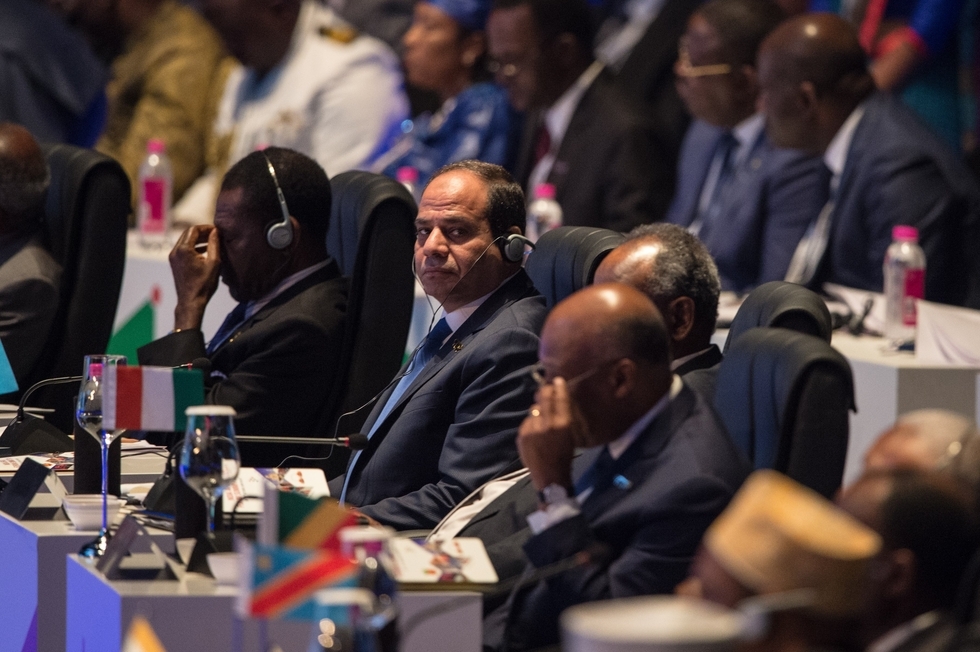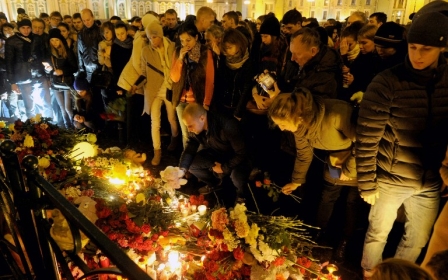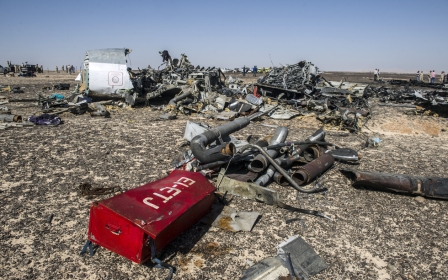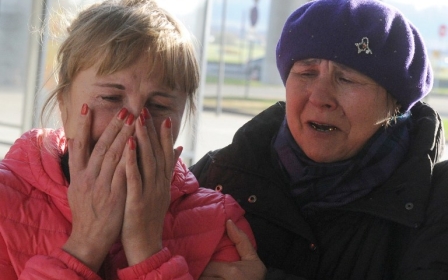Egypt president rubbishes IS group air disaster claims as 'propaganda'

Egyptian President Abdul Fattah al-Sisi has dismissed as "propaganda" claims by a branch of the Islamic State group that it was responsible for downing a Russian plane, the BBC reported on Tuesday.
His remarks came as a top US intelligence official said it was "unlikely" IS had been involved in the Kogalymavia airline disaster over the Sinai Peninsula that killed 224 people on Saturday.
"When there is propaganda that it crashed because of ISIS, this is one way to damage the stability and security of Egypt and the image of Egypt," Sisi told the BBC, using an alternative acronym for IS.
"Believe me, the situation in Sinai - especially in this limited area - is under our full control," he added. "All those interested in the matter are welcome to participate in the investigation."
Experts say the fact that debris and bodies were strewn over such a wide area points to mid-air disintegration of the aircraft.
On Monday, US director of National Intelligence James Clapper said he could not rule out IS involvement in Saturday's incident, but thought it "unlikely".
"We don't have any direct evidence of any terrorist involvement yet," he said.
Earlier Monday the airline said the plane had come down due to “external” factors and ruled out any technical failure or human error in the disaster.
"The only explanation is some kind of external action," senior Kogalymavia executive Alexander Smirnov told a news conference in Moscow, without elaborating.
However, Alexander Neradko, head of Russia's aviation authority, criticised the airline's comments, saying they were "premature and not based on any real facts".
Analysis of the plane's "black boxes", which could solve the mystery of what happened to the doomed jet, is expected to begin on Tuesday, according to Egyptian officials.
Analysts have dismissed claims the jet could have been shot down by IS-affiliated groups in the region if it was flying at its cruising height of 30,000 feet (9,000 metres), but did not rule out that a bomb may have been planted on board.
New MEE newsletter: Jerusalem Dispatch
Sign up to get the latest insights and analysis on Israel-Palestine, alongside Turkey Unpacked and other MEE newsletters
Middle East Eye delivers independent and unrivalled coverage and analysis of the Middle East, North Africa and beyond. To learn more about republishing this content and the associated fees, please fill out this form. More about MEE can be found here.




